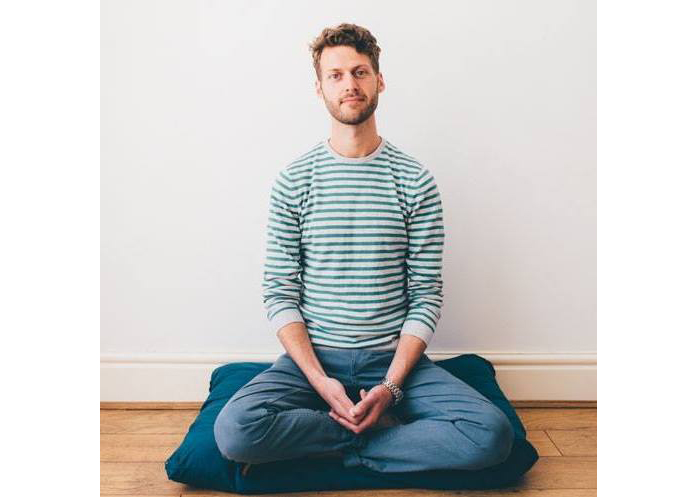Time to go Inside

It can be easy to rush through life without stopping to notice much. Perhaps this time of lockdown is an opportunity for us to slow down and rethink how we live our lives. As lockdown comes to an end there is still time to consider yourself and your internal wellbeing.
Paying more attention to the present moment – to your own thoughts and feelings, and to the world around you – can improve your mental welfare. Becoming more aware of the present moment can help us enjoy the world around us more and understand ourselves better.
When we become more aware of the present moment, we begin to experience afresh things that we have been taking for granted. An important part of mindfulness is an awareness of our thoughts and feelings as they happen moment to moment. We start to realise how quickly we can change from one mood or thought to another, and this helps us to enjoy life, even when we may not be feeling good in that moment.
We contacted Mike Kewley and asked him for advice, this is what he had to say:
My name is Mike Kewley and I am a Mindfulness Teacher based on the Isle of Man. I offer regular courses, workshops, retreats and one-to-one coaching. I’ve been exploring meditation and nonduality for over 20 years and I’m the eldest son of the meditation master Dhammachariya Pannadipa. I have degrees in Religious Studies and Western Esotericism and my approach to teaching is deeply informed by neuroscience, Zen Buddhism and the Wisdom Traditions. I’ve been a guest on Conscious TV, given a Tedx talk on Happiness and I’m the founder of the annual Mindful Mann Wellbeing Festival. I live in Douglas with my wife, two young children and Poppy the cat.
What are your values and objectives?
As a teacher of meditation I don’t have many objectives, in fact, paradoxically, objectives can actually get in the way of progress. There are a range of simple techniques, methods and perspectives I can share with people, but the real transformation happens when we sit together in silence. The silence has no objective and can be a powerful antidote to the chattering mind which is obsessed by outcomes, agendas and narratives. This simple shift from doing to being is priceless.
How did you get into this practice?
I grew up around Therevadan Buddhism because my Dad was a Lay-Buddhist who also spent time as an ordained monk. He ran the Isle of Man Buddhist group and as a child I would often sit cross-legged with everyone, wondering what exactly they were doing. As a teenager I began experiencing stress, anxiety and depression and looked for a non-medicated way of managing this turbulence. I took up a formal daily meditation practice and within six weeks my entire life had changed. I’ve been practicing ever since, and I’m constantly surprised by the new insights and perspectives it opens up for me.
Why is it important?
Mindfulness is important because we are often so mindless. We live most of our waking lives in a state of constant distraction, chasing gratification and avoiding suffering. This is exhausting and can often lead to poor mental and emotional health as well as overthinking, stress and burn-out.
The ability to stop and consciously shift gear into mental and physical stillness, is like finding the eye of the storm. From this inner-space of calm and clarity we reorient ourselves and engage with each moment as it arises, rather than living in the stories which dominate our heads.
Who can do it?
If you can pay attention, you can learn how to be more mindful. It’s taught in primary schools, prisons and in some of the biggest companies in the world. But it’s not only for those who want to destress or improve productivity, it’s traditional purpose was to help us plumb the depths of what we really are, and discover what we’re really not.
Anything that you would like you clients to know?
You are not your thoughts. Of course, you experience thoughts but every single one of them without exception comes and goes. You are still here. Thoughts are simply the creative traffic of the mind passing through. The more we discover how to step back and watch thoughts arise and pass, without getting snagged on them, the more the mind ceases to be a problem.
Plans for the future?
I’m looking forward to guiding another weekend silent Mindfulness retreat in March at the Mill House in Santan, and organising this year’s Mindful Mann Festival with another programme of amazing wellbeing teachers. I’m also writing a book about meditation and non-duality which I hope to finish in the next few weeks.
Mike has a weekly virtual online session at 7.30-9pm every Thursday at https://www.facebook.com/events/187520136456033
Details for this and other workshops may be found on his website: https://mikekewley.com/weekly-zoom-mindfulness-group